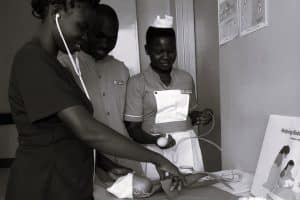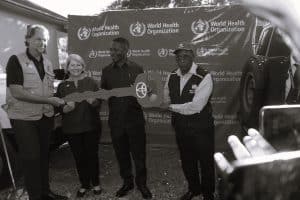Analyzing the Alarming Maternal Mortality Rate in Tanzania: A Closer Look at the Statistics of 2020
Introduction to the maternal mortality rate in Tanzania
Maternal mortality rate is a critical indicator of the healthcare system’s effectiveness in providing safe and quality maternal care. In Tanzania, the maternal mortality rate has been a cause for concern, with many women losing their lives during childbirth. This article aims to delve deeper into the alarming statistics of the maternal mortality rate in Tanzania 2020 and explore the factors contributing to this issue.
Understanding the significance of maternal mortality rate statistics
The maternal mortality rate is defined as the number of maternal deaths per 100,000 live births. This statistic is crucial in assessing the overall health of a nation’s mothers and the effectiveness of its healthcare system. In Tanzania, the maternal mortality rate remains high, indicating a significant gap in the provision of adequate maternal healthcare services.
Maternal mortality rate in Tanzania 2020
According to the latest data, the maternal mortality rate in Tanzania 2020 was estimated to be around 556 deaths per 100,000 live births. This figure is significantly higher than the global average and places Tanzania among the countries with the highest maternal mortality rates in the world. These statistics highlight the urgent need for interventions and improvements in maternal healthcare services.
Factors contributing to the alarming maternal mortality rate
Several factors contribute to the high maternal mortality rate in Tanzania 2020. One of the primary factors is the lack of access to quality healthcare facilities, especially in rural areas. Many pregnant women in remote regions of Tanzania do not have access to skilled birth attendants or emergency obstetric care, leading to complications and preventable deaths. Additionally, cultural and traditional practices can hinder women from seeking timely medical assistance, further exacerbating the problem.
Challenges in addressing maternal mortality in Tanzania
Addressing the issue of maternal mortality in Tanzania is not without challenges. Limited financial resources and inadequate healthcare infrastructure pose significant obstacles in providing the necessary maternal healthcare services. Additionally, cultural beliefs and gender inequalities hinder women from seeking appropriate healthcare during pregnancy and childbirth. Overcoming these challenges requires a multi-faceted approach involving the government, healthcare providers, and the community.
Initiatives and interventions to reduce maternal mortality

To combat the high maternal mortality rate, Tanzania has implemented various initiatives and interventions. One such initiative is the Maternal and Newborn Health Quality of Care (QoC) Collaborative, which aims to improve the quality of maternal and newborn healthcare services through training healthcare providers and strengthening health systems. Additionally, the government has increased its investment in maternal healthcare, focusing on improving access to skilled birth attendants and emergency obstetric care.
Importance of improving healthcare infrastructure and accessibility
Improving healthcare infrastructure and accessibility is crucial in reducing maternal mortality in Tanzania. This includes establishing well-equipped healthcare facilities in remote areas, training more healthcare professionals, and ensuring the availability of essential medical supplies. Furthermore, efforts should be made to improve transportation systems to enable pregnant women to access healthcare facilities in a timely manner, especially during emergencies.
Role of education and awareness in reducing maternal mortality
Education and awareness play a vital role in reducing maternal mortality in Tanzania. Providing comprehensive reproductive health education to both women and men can empower individuals to make informed decisions regarding their reproductive health. It is also essential to raise awareness about the importance of seeking prenatal care, delivering in a healthcare facility, and recognizing danger signs during pregnancy. By promoting education and awareness, Tanzania can empower women to take control of their reproductive health and seek appropriate care when needed.
International efforts to support Tanzania in reducing maternal mortality

Recognizing the severity of the issue, international organizations and donor countries have been actively supporting Tanzania in reducing maternal mortality. These efforts include providing financial aid, technical support, and capacity building to strengthen the healthcare system. Collaborations and partnerships between international organizations, the Tanzanian government, and local stakeholders are essential in achieving sustainable improvements in maternal healthcare.
Moving towards a safer future for Tanzanian mothers
The high maternal mortality rate in Tanzania 2020 is a pressing issue that requires immediate attention and action. By addressing the factors contributing to this problem, implementing effective interventions, and improving healthcare infrastructure and accessibility, Tanzania can make significant strides in reducing maternal mortality. With the support of international organizations and the commitment of the government and local communities, a safer future for Tanzanian mothers is within reach.
For more articles related to Hospitals in Tanzania, click here

























